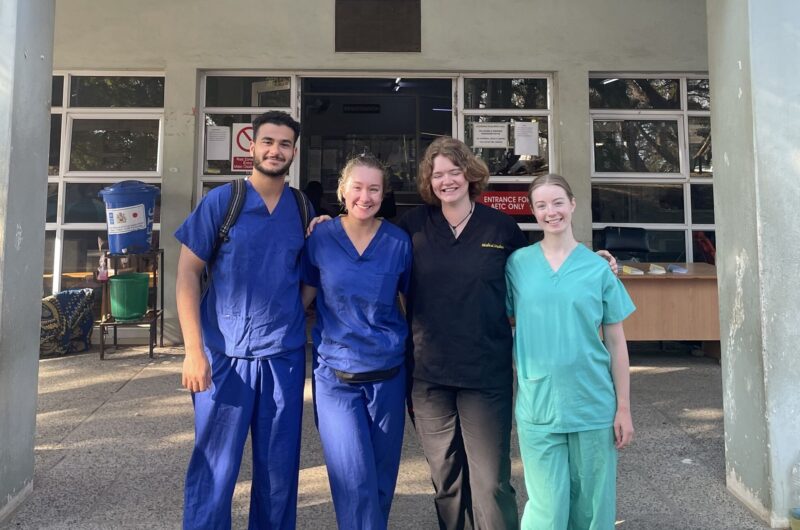Aly Shaaban is a medical student who undertook his ethical elective in Malawi, working as part of the Malawi Hearing Project. Here he describes the hands-on learning and research experience he gained.
“I got involved in global health after attending the CGHP awards evening and feeling inspired by the work being done. For my elective I joined the Malawi Hearing Project, which is improving access to education for children who are deaf through innovative and affordable hearing devices.
The elective was an opportunity to understand more about healthcare delivery in low-resource settings, while contributing to medical education and research in Malawi. We gained hands-on clinical experience, learnt about the healthcare system in Malawi, and conducted a research project to explore the lived experiences of children with chronic otitis media (glue ear).
The elective gave us the opportunity to engage in hands-on medical education that emphasized responsibility and active participation in patient care, a stark contrast to the more observational approach often seen in the UK. The research component was also distinctive as it focused on a locally-relevant health issue, conducted in collaboration with Malawian healthcare professionals and researchers, ensuring cultural and contextual relevance.
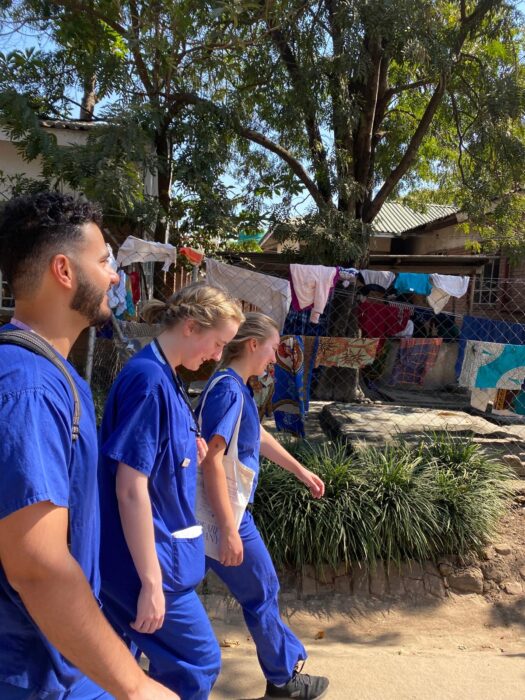
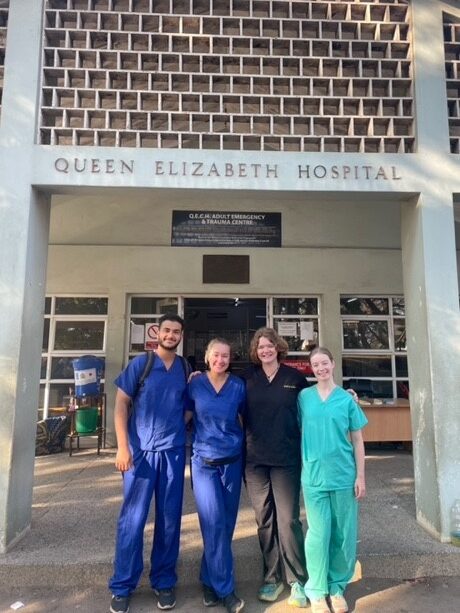
Learning and sharing skills
I was responsible for clinical duties in both the Accident & Emergency (A&E) and Internal Medicine departments. In A&E, I practiced clerking patients, assessing them using the ABCDE approach, and participating in clinical procedures like cannulation and lumbar punctures. In Internal Medicine, I participated in consultant-led teaching ward rounds, presented cases, and followed up on patient investigations. Additionally, I was involved in designing and setting up a research project on chronic otitis media in children. I was involved in the ethical application process and recruiting local researchers to conduct the study.
I brought a strong foundation in clinical skills and an enthusiasm for hands-on learning, which allowed me to quickly adapt to the demanding environment in Malawi. My most significant impact was in the research project, where I contributed to the study’s design, secured ethical approval, and established collaborations with local stakeholders who are facilitating the completion of the project.
Global health work provides an unparalleled opportunity to develop clinical skills, adapt to new environments, and contribute to healthcare in areas with significant need. It also fosters a deeper understanding of global health issues and the importance of equitable healthcare access. It is a period of incredible personal and professional growth.
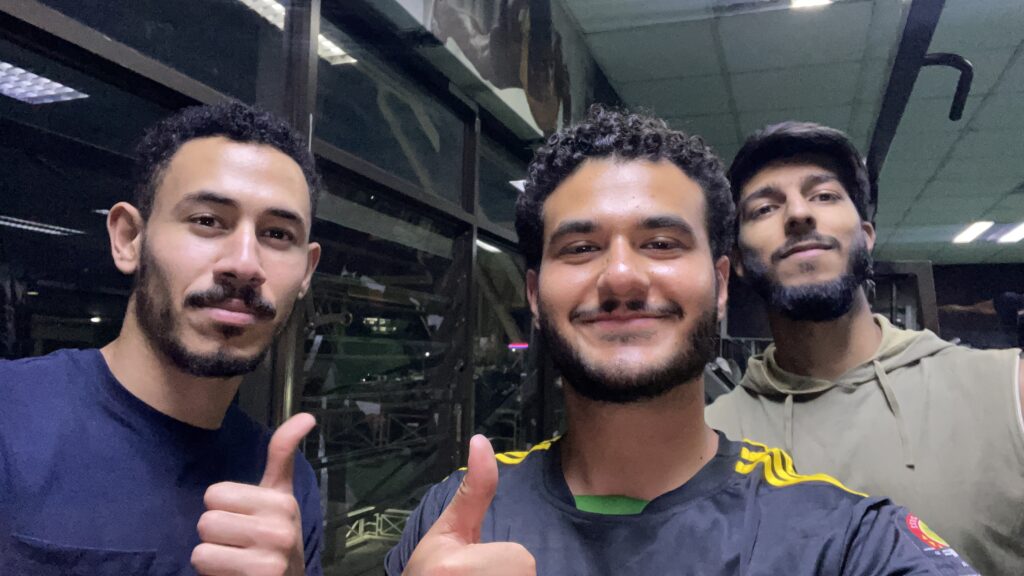
Challenges and rewards
The most challenging aspect was the intensity and fast pace of the A&E department, where limited support and resources often led to burnout. The most rewarding experience was in the Internal Medicine department, where I received exceptional teaching and was given real responsibility for patient care, significantly enhancing my clinical skills and confidence.
Personal and professional development
Personally, this experience has deepened my understanding of resilience and adaptability in challenging environments. I am now far better at dealing with uncomfortable situations and I can stand up for myself better.
During the visit we met four Malawian medical students and became excellent friends throughout. I joined their local football club and went for dinners with them. They invited me to go to a nearby pretty town called Zomba where our car broke down. We then sent for a rescue car that also broke down. It was an incredible bonding experience.
Professionally, I have gained invaluable hands-on experience in patient care and diagnostic reasoning, which has greatly improved my clinical competence. The exposure to different pathologies and healthcare challenges has broadened my medical knowledge and prepared me for working in diverse healthcare settings. It has also made me familiar with the challenges, limitations and stakeholders involved in conducting research as the primary investigator.
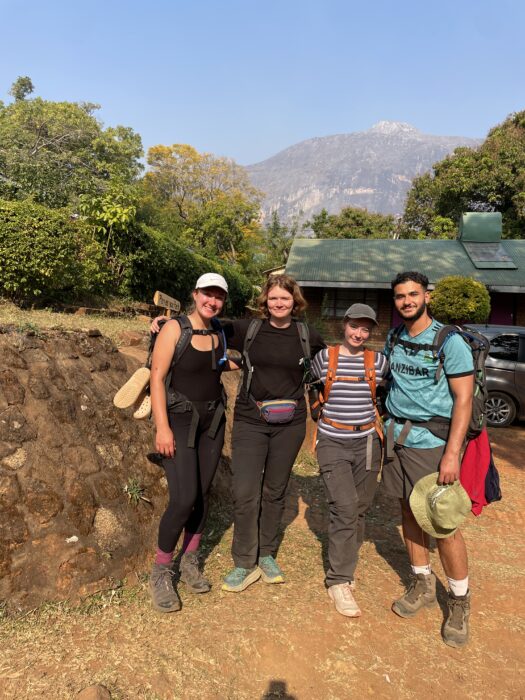
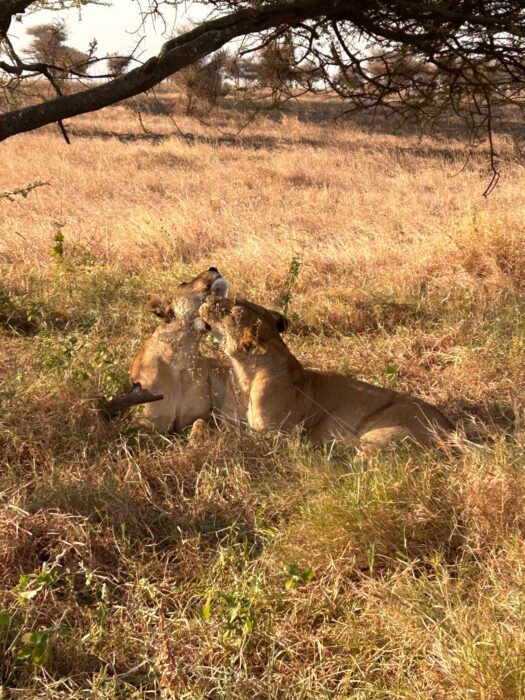
Impact of the visit
The research on chronic otitis media will provide valuable insights into the challenges faced by deaf children in Malawi, potentially leading to improved health interventions and educational support. Additionally, my involvement in the hospital departments helped alleviate some of the workload, contributing to patient care during my stay.
The experience also highlighted to me the benefits of giving medical students more responsibility and hands-on learning opportunities, which could be implemented in the UK to enhance medical education. The structured and interactive teaching methods in Malawi could inspire similar approaches in UK hospitals, fostering a more engaging and practical learning environment.
Find out more about ethical elective opportunities with CGHP’s partnership programmes, or contact us at info@cghp.org.uk
Return to blogs

